-
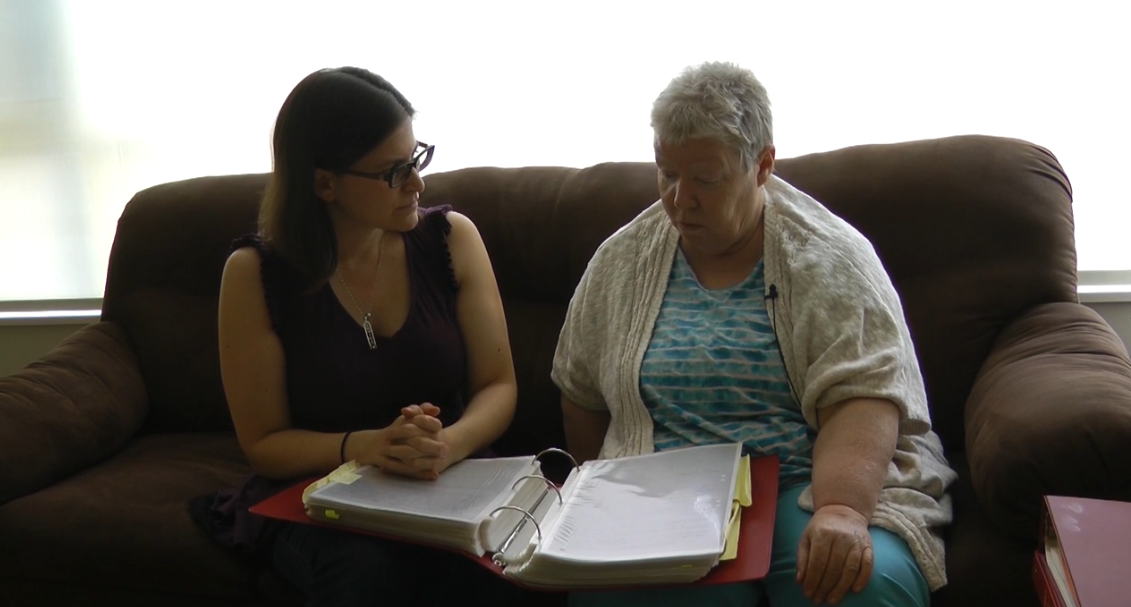
"I don't want anybody to forget"
An excerpt from an interview with Patricia Seth.
-

Touring the Tramways
An audio recording of conversations that took place during a tour of the tramways that sit below the HRC campus. Site visitors discuss site security controlling access to specific areas of the former institution. David Houston describes escaping through the tramways and meeting the 'farmboys'. Another site visitor remarks on the size of the population of children that resided at the HRC.
-
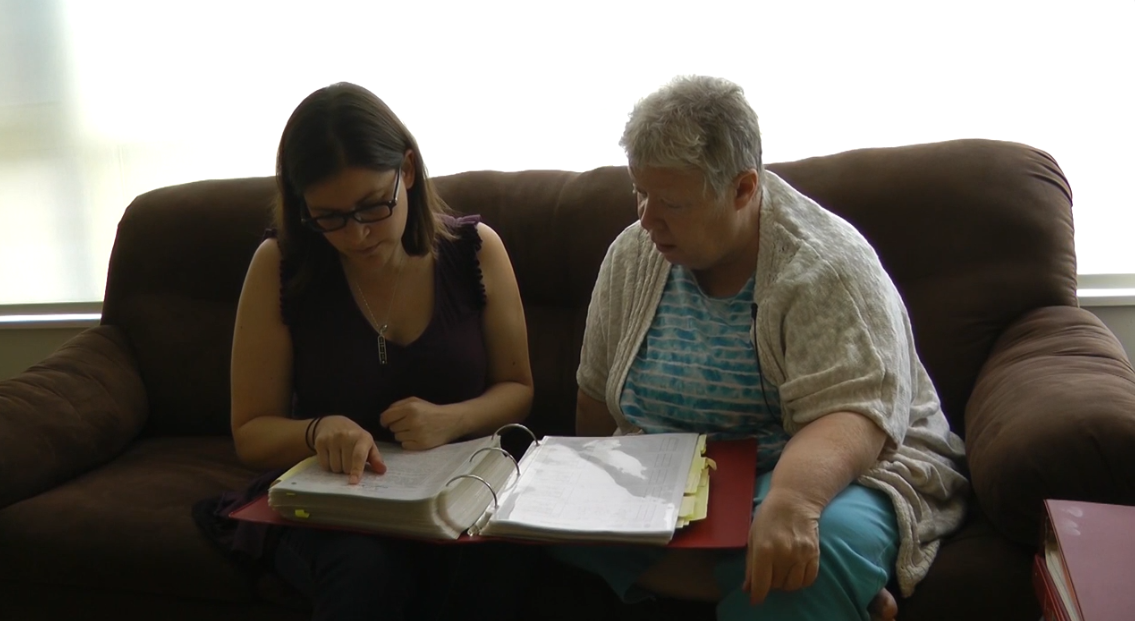
Interview with Pat Seth
Pat Seth, a survivor of the Huronia Regional Centre, shares her experiences of institutionalization while reviewing her patient files.
-
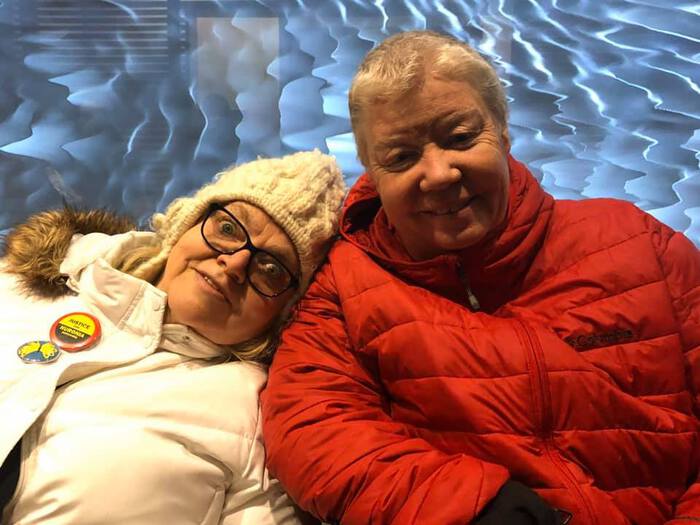
Carrieanne Ford and Pat Seth at Concordia University in Montreal Quebec
Two women in winter gear smile before a blue backdrop. The woman with a white knit hat rests her head on the other woman's shoulder.
-
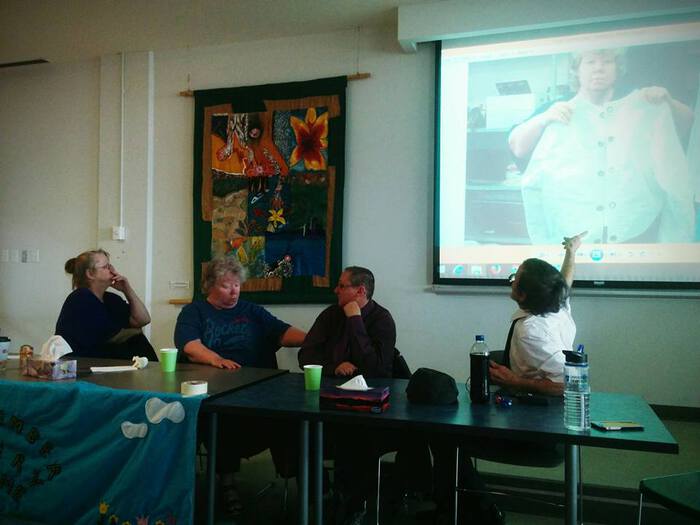
Speakers Bureau Presentation at York University in Toronto Ontario - Harold Dougall Presenting
Four people sit at a table in a dark room, with an image of a straight jacket projected behind them.
-
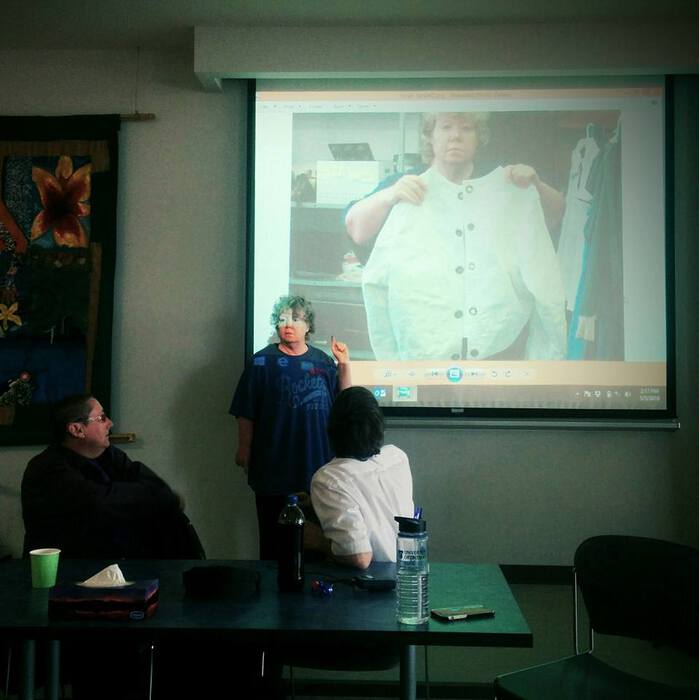
Speakers Bureau Presentation at York University in Toronto Ontario - Pat Seth Presenting
A woman stands in a dark room. The projection behind her features a picture of her holding a straight jacket.
-
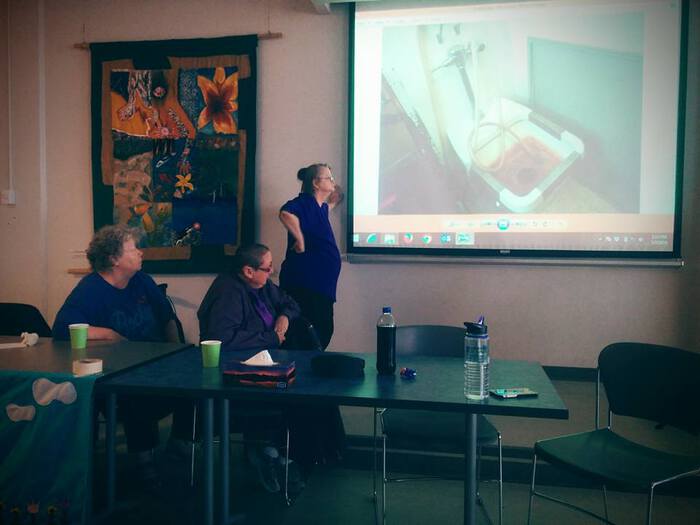
Speakers Bureau Presentation at York University in Toronto Ontario - Marie Slark Presenting
A woman stands in a dark room facing a projection of an image of a bathtub.
-
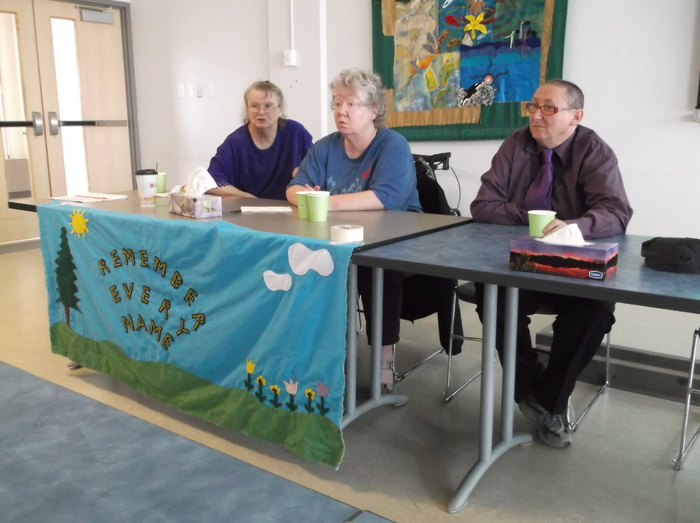
Speakers Bureau Presentation at York University in Toronto Ontario - Panel
Three women sitting at a table.
-
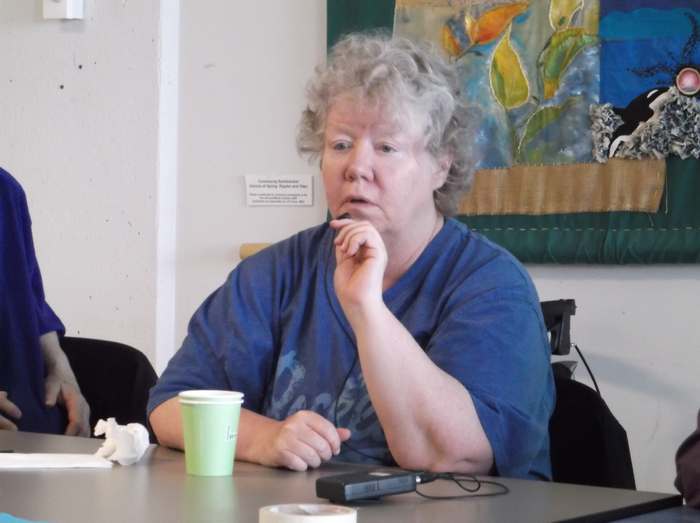
Speakers Bureau Presentation at York University in Toronto Ontario - Pat Seth Presenting 2
A woman sits at a table speaking.
-
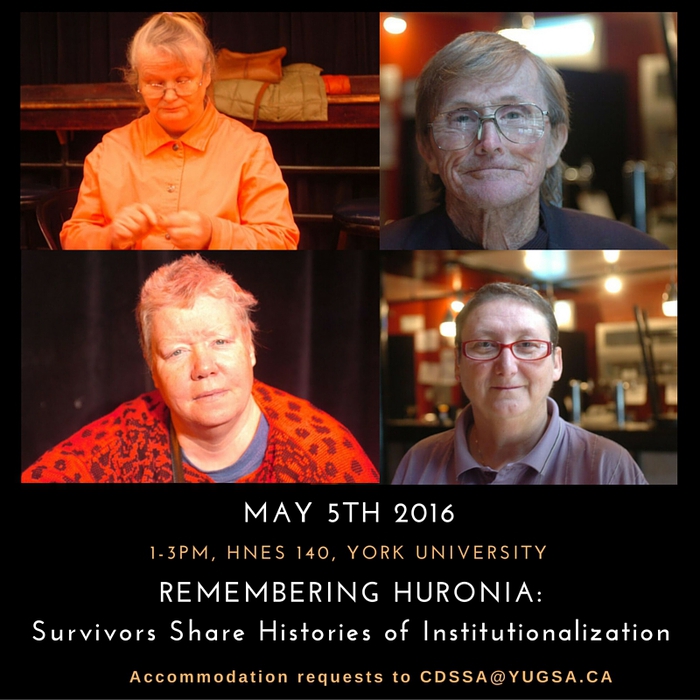
Speakers Bureau Event Poster - York University
Profile pictures of four speakers. Text: May 5th 2016. 1-3 HNES 140, York University. Remembering Huronia: Survivors Share Histories of Institutionalization. Accommodation requests to CDSSA@YUGSA.CA.
-
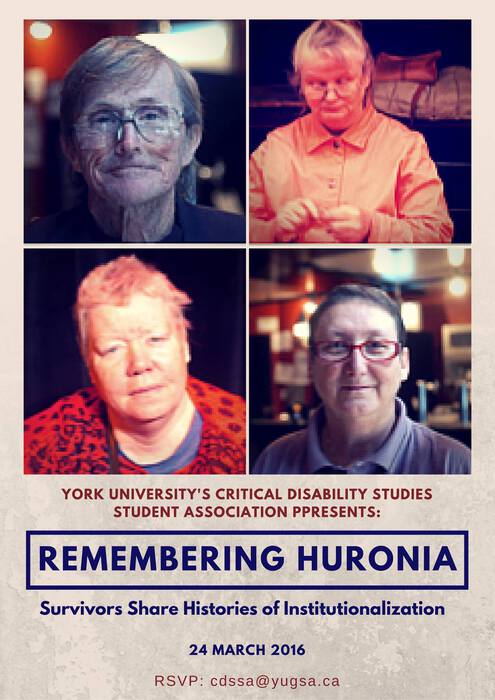
Speakers Bureau Event Poster - York University 2
Profile pictures of four speakers. Text: York University Critical Disability Studies Student Association Presents: Remembering Huronia.
-
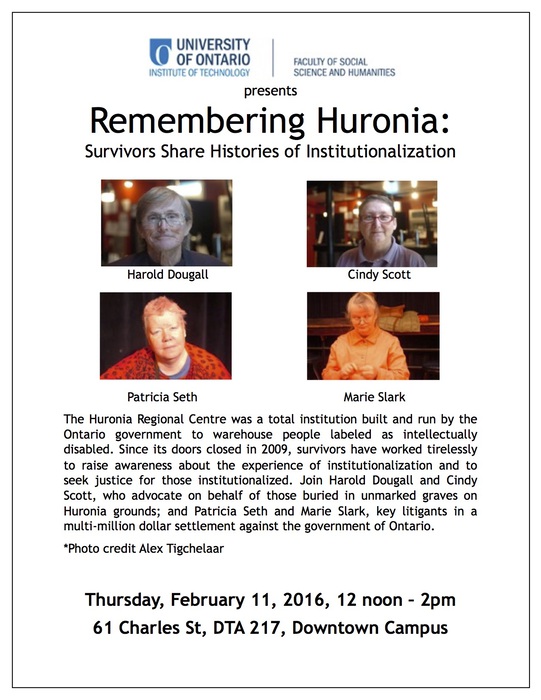
Speakers Bureau Event Poster - Ontario Tech University
Profile pictures of four speakers. Text: Remembering Huronia: Survivors Share Histories of Institutionalization. The Huronia Regional Centre was a total institution built and run by the Ontario government to warehouse people labeled as intellectually disabled. Since its doors closed in 2009, survivors have worked tirelessly to raise awareness about the experience of institutionalization and to seek justice for those institutionalized. Join Harold Dougall and Cindy Scott, who advocate on behalf of those buried in unmarked graves on Huronia grounds; and Patricia Seth and Marie Slark, key litigants in a multi-million dollar settlement against the government of Ontario. Photo credit Alex Tigchelaar. Thursday, February 11, 2016, 12 noon – 2pm. 61 Charles St, DTA 217, Downtown Campus.
-
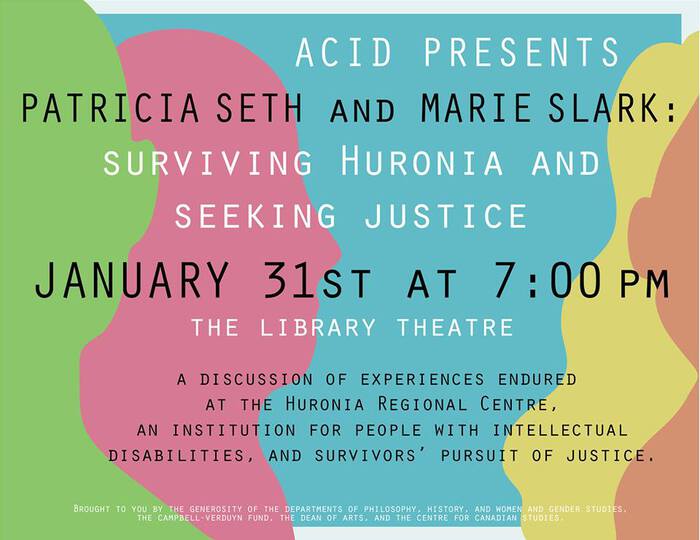
Speakers Bureau Event Poster - Mount Allison University
A poster with silhouettes in green, pink, blue, yellow, and orange. Text: ACID Presents: Patricia Seth and Marie Slark. Surviving Huronia and Seeking Justice. January 31st at 7:00. The Library Theatre. A discussion of experiences endured at the Huronia Regional Centre, an institution for people with intellectual disabilities and survivors’ pursuit of justice.
-
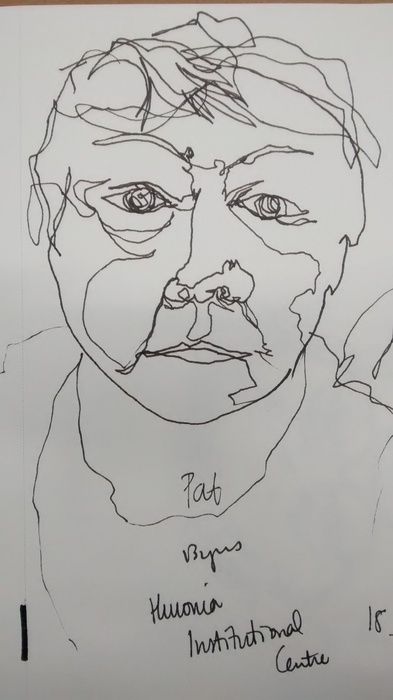
Speakers Bureau Presentation at Mt Allison University in Sackville New Brunswick - Drawing of Pat Seth
An ink sketch of a woman’s face on white paper. Text: Pat. 13 years. Huronia Institutional Centre.
-
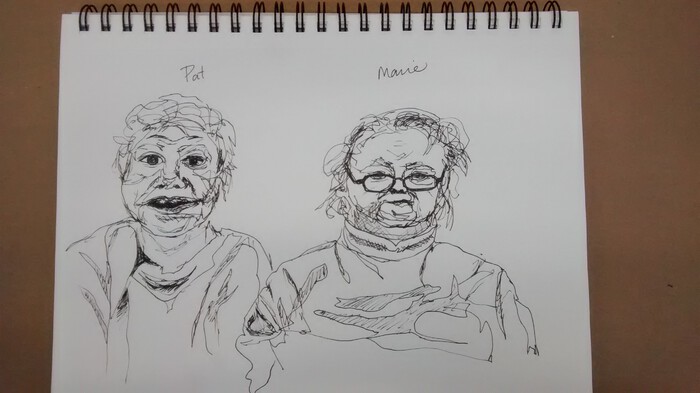
Speakers Bureau Presentation at Mt Allison University in Sackville New Brunswick - Drawing of Pat Seth and Marie Slark
An ink sketch of two women on white paper. Each is labeled: Pat and Marie.
-

Announcement: Tanis Doe Award Recipients Marie Slark and Patricia Seth
Text: Marie Slark and Patricia Seth: Tanis Does Award Winners 2015
Marie Slark and Patricia Seth were recognized as winners of the 2015 Tanis Doe award from the Canadian Disability Studies Association. This award honours an individual (or in this case, two individuals) who dare to "speak the unspeakable" in advancing the study and culture of disability, and who have enriched through research, teaching, or activism, the lives of Canadians with disabilities. This is the major award presented by the association, reserved for those who have devoted an entire life to disability rights and advocacy. Pat and Marie not only satisfy these criteria, they exemplify them, they live them. The award was presented to Pat and Marie at a large conference in Ottawa in summer 2015. This conference is called Congress and it gathers together academics and researchers from all over Canada and the world. Pat and Marie were also given the opportunity to speak at Congress, and their presentation focused not just on the work they had done in the class action lawsuit and settlement, but also all of the work that is still left to do in helping people to access funds and find support.
In the past, this award has gone exclusively to academics – university professors and researchers. So Pat and Marie’s recognition is also a powerful message that we find our most important leaders and teachers not only or even primarily in the classroom or in the academy – we find them where disabled people can organize together to fight injustice and to support one another.
Using their unique style of collaborative delivery, Pat and Marie used their presentation to ask tough questions of the audience: how will you support institutional survivors? How will you make sure this abuse and neglect doesn’t happen again?
-
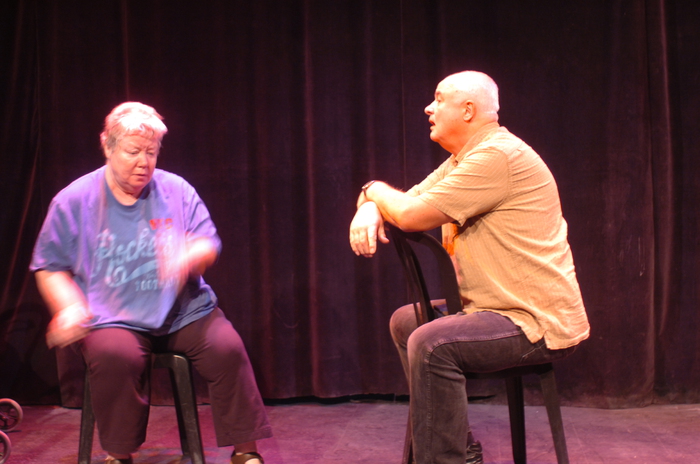
Cabaret Rehearsal - Pat Seth and David Houston
A woman and a man sit on chairs on a stage.
-
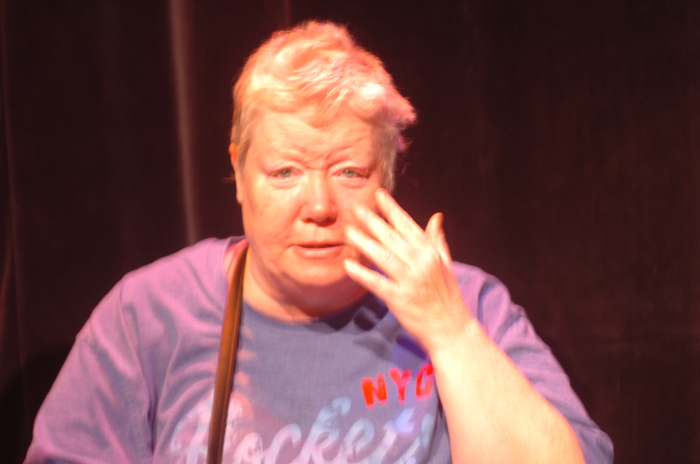
Cabaret Rehearsal - Pat Seth
A woman stares forward, her hand up to partially cover her face.
-
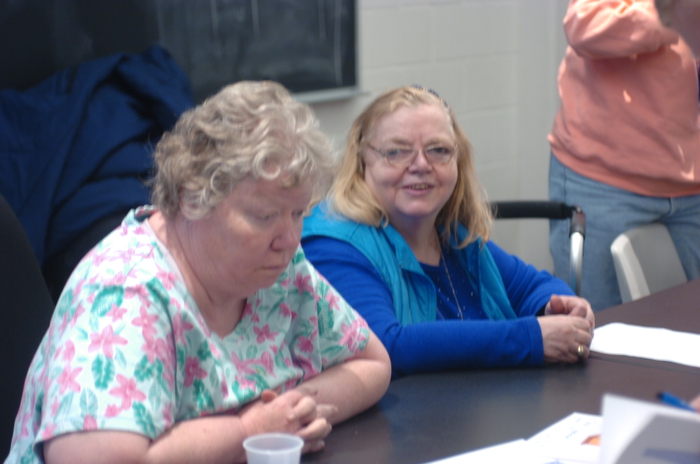
Workshop - Pat Seth and Carrieanne Ford
Two women sit at a table in a classroom. The woman in the foreground is wearing a pink floral print shirt, and her head is down. The woman in the background is wearing blue, and she is turned toward the camera smiling.
-
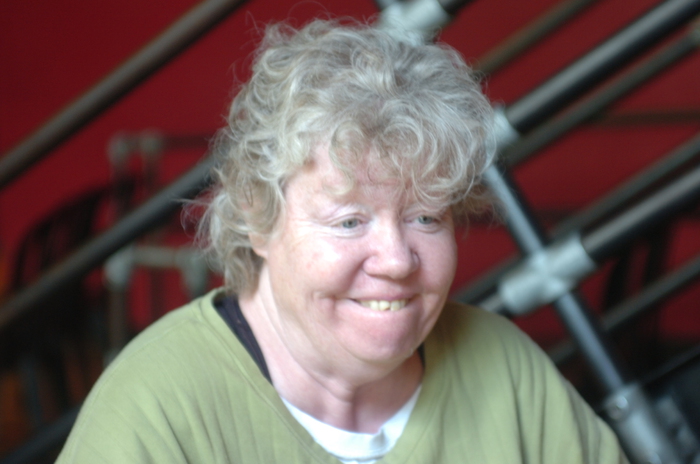
Cabaret Rehearsal - Pat Seth 2
A woman with short silver hair and a green shirt smiles.
-
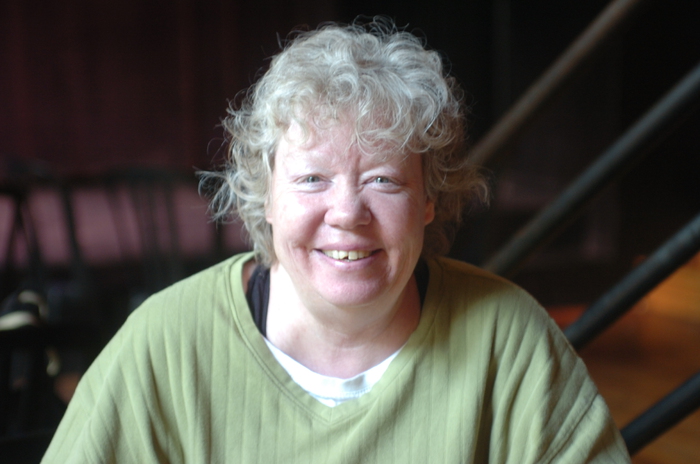
Cabaret Rehearsal - Pat Seth 3
A woman in green faces forward smiling.
-
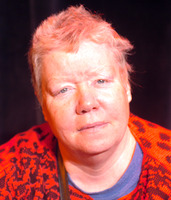
Cabaret Rehearsal - Pat Seth 4
A woman in red with short cropped hair stares forward, head tilted.
-
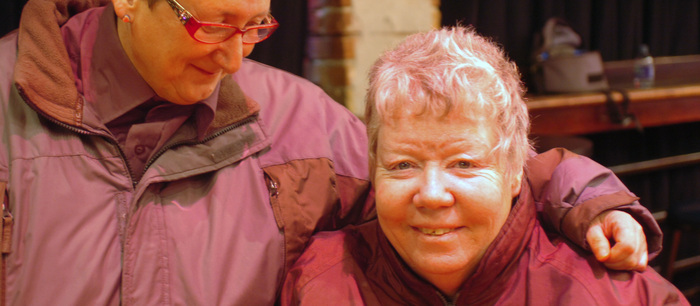
Cabaret Rehearsal - Cindy Scott and Pat Seth
Two women smile, their arms around one another.
-
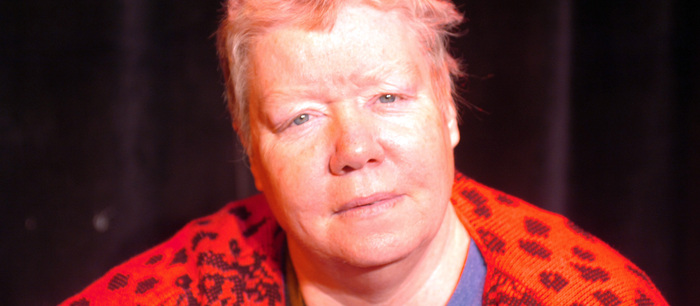
Cabaret Rehearsal - Pat Seth 5
A woman in red with short cropped hair stares forward, head tilted.
-
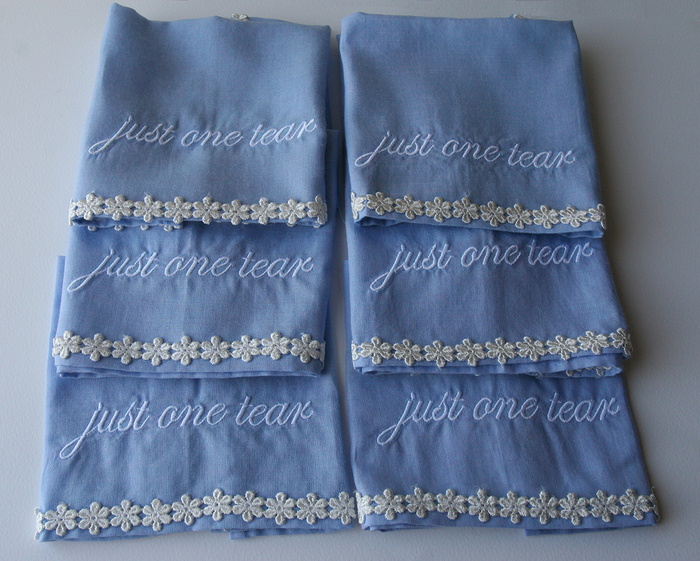
Multiples - Hankies
Blue handkerchief bordered with floral lace, and machine with embroidered text "just one tear."
























